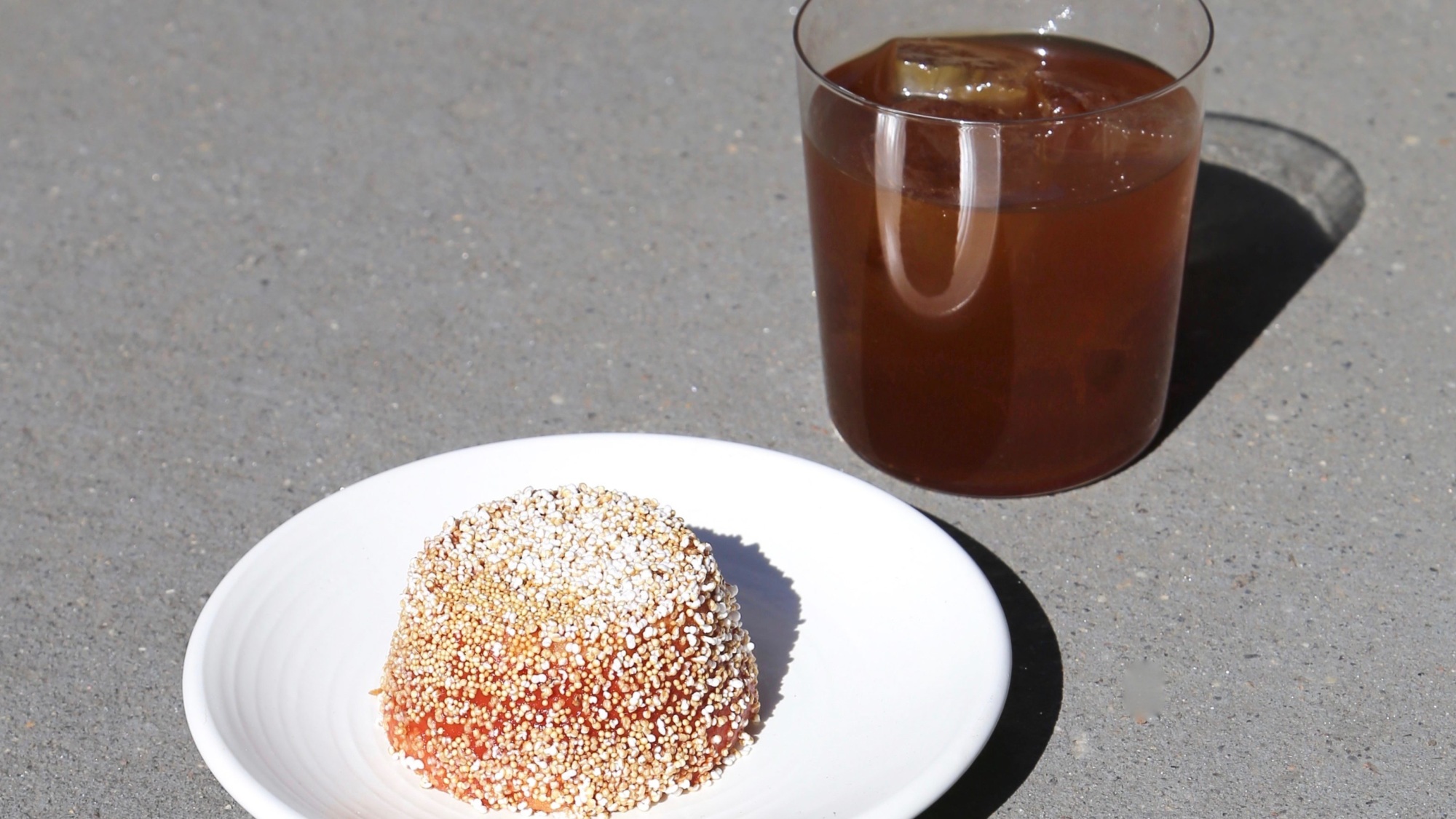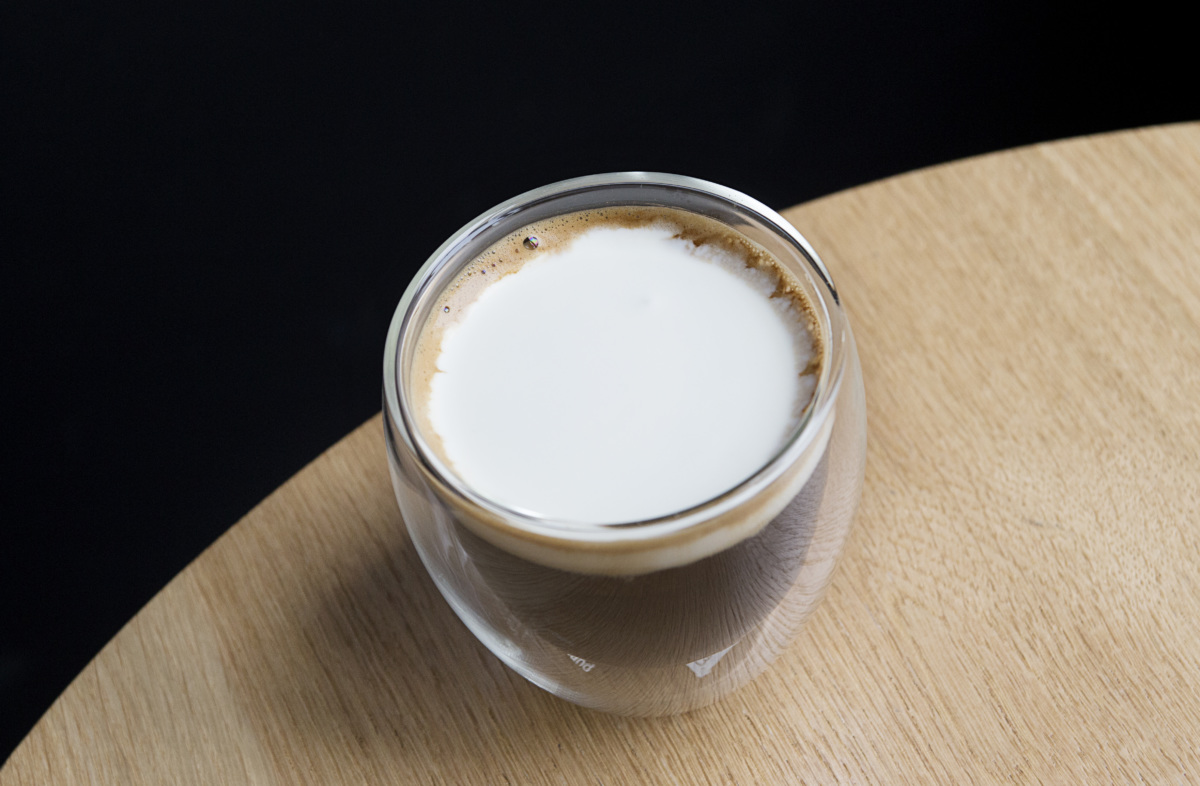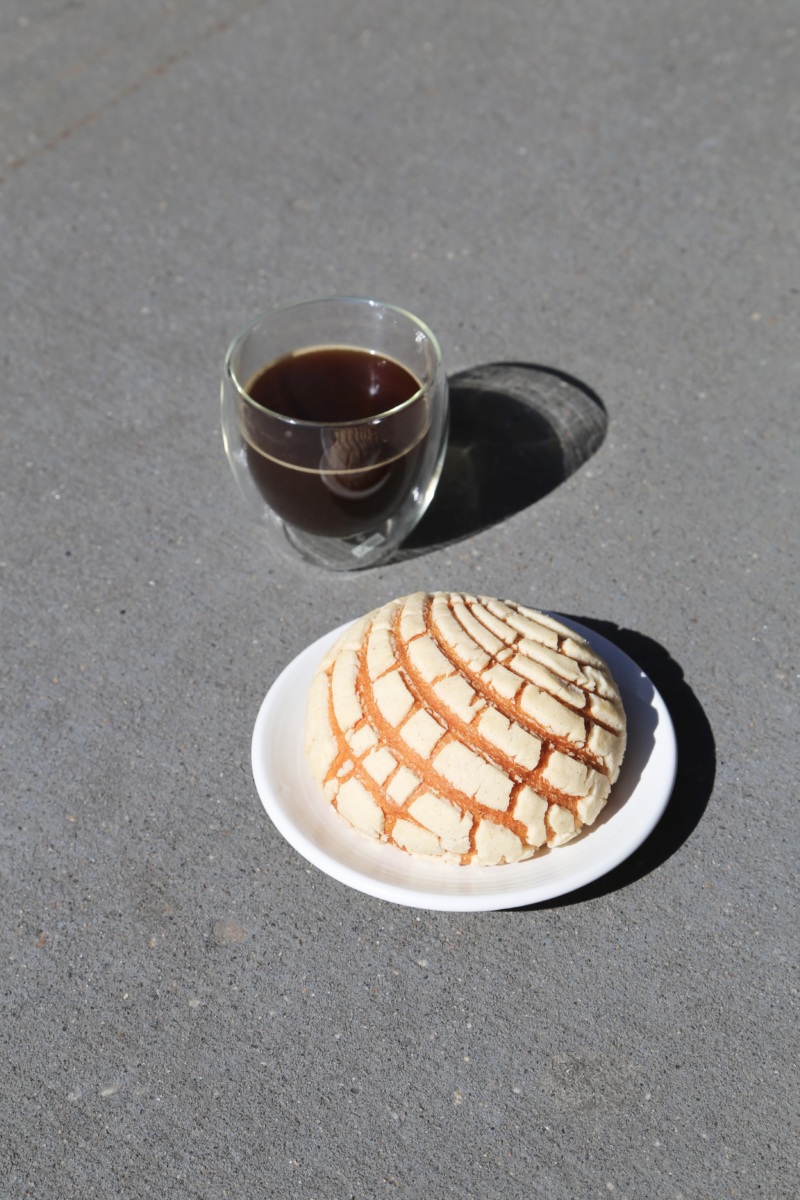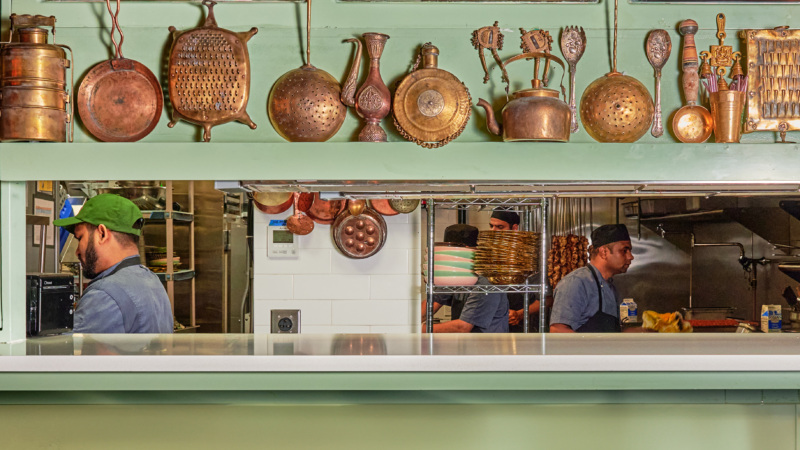ATLA
NoHo
Close

The all-day café movement has swept New York City, and there’s no sign of it stopping. From De Maria (one of the first to open its doors, a little over a year ago) to Gabe Stulman’s Studio at the Freehand Hotel, the list goes on. At Enrique Olvera and Daniela Soto-Innes’s ATLA, a Mexican café, restaurant, and bar that sits confidently on the corner of Lafayette and Great Jones, coffee is, of course, a key component.
A signature of the all-day concept is a European-style coffee program, accompanied by offerings echoed at cult-favorite coffeeshops like La Colombe and Stumptown: pour over, espresso, Americano, cortado, among the usual suspects. Cold brew, which originated in Japan, is also ubiquitous. With the preference for non-dairy alternatives at an all-time high, you’ll often find a varied selection of soy, nut, or even oat milk, for pairing with your beverages. Olvera and Soto-Innes hail from Mexico City. Thus, the caffeine-based offerings at ATLA are more in line with what you might find there, at a place like Buna — a café and supplier that both ATLA and its sister restaurant, Cosme, source beans from.
As ATLA beverage director Yana Volfson explains, “ATLA’s coffee program explores a more modern Mexican coffee culture in both diction and recipe.” Instead of a latte or cappuccino, you’ll find café con leche, which “brings us back to an origin that is more Mexican than European coffee and milk.” ATLA’s modern reconfiguration of the café de olla — a traditional Mexican beverage made of ground coffee, cinnamon, and piloncillo (Mexican brown sugar) in a customary clay pot — further anchors the program’s roots.
Espresso drinks can be ordered with cow milk or coconut milk, the latter of which is a reference to how important nuts and seeds are to Mexican cuisine. For example, while sesame seeds are commonly associated with Japan, Mexico is a major importer as well, given they’re an essential ingredient in sauces like mole and adobo (and are often sprinkled over various preparations of bread). Volfson reinforces this notion: “we have to remember that something that is so Mexican is horchata.” The iconic beverage, with its cloudy-white appearance (sometimes attributed to the presence of coconut milk), is generally made with almonds, sesame seeds, rice, barley, and tiger nuts. ATLA modernized café con leche with coconut milk; it’s not commonly served in third wave coffee shops nor traditional cafés in Mexico. Its prominence on the menu is about citing and highlighting ingredients that are inherently Mexican.

To take this celebration of Mexican coffee culture (namely its flavors and agriculture) to new heights, ATLA has teamed up with DRIFT and the aforementioned purveyor, Buna, to host a daily pop-up from 9am-1pm through Sunday, April 22nd. That means diners will be able to try specialty items, including pastries and three drinks from Volfson and Buna coffee founder Eduardo Pérez Varona that showcase traditional Mexican ingredients (coconut, corn, cacao) and the versatility of his beans.
ATLA has used Tun-Dajá, a single-origin bean sourced from Oaxaca, in its daily espresso beverages since the restaurant opened last spring. Salvia, a blend that comes from Veracruz and Oaxaca, is being highlighted throughout the pop-up. Since coffee is an organic compound, its flavor “has a tendency to change on a day to day and hour to hour basis,” according to Volfson. To that end, Salvia is “darker on the nose with notes of roasted pecans and cooked cherries,” with a “velvety” texture and a finish of “tannin and acidity.”
Inspired by traditional atole—a hot corn drink made from masa—the “Atla-Ole” is made of coffee, chocolate, corn, and amaranth (an ancient grain) atole. It’s thick and slightly grainy in texture, and immensely comforting. Then there’s the “Un Americano,” a single serve French press, and a cold beverage called “The Pollenizer” — cacao-infused cold brew with coconut water and honey. Volfson describes it as a cocktail that “celebrates more traditional customs like brewing coffee con cacao,” inspired by “biodiversity and understanding the relationships that Buna has with its coffee farmers as a sustainable goal.”

Soto-Innes’ concha (a sweet Mexican pastry) is served daily at ATLA and is quite popular, for good reason. Light, airy, flecked with citrusy notes throughout and topped with cookie crumbs, it shatters gracefully as you bite into it. The pop-up has given the chef an opportunity to further elaborate on the pastries she grew up with in Mexico, adding her own twists. Take the guava garibaldi, a type of Mexican pan dulce (or “sweet bread”) that is said to have been popularized by the bakery chain El Globo. Garibaldis are small, cakey (almost muffin-like) and coated with white sprinkles. Soto-Innes’ version is perfectly moist with a creamy, millennial-pink guava filling, and topped with puffed amaranth, which gives it a nutty flavor. She’s also serving bigotes (a de facto Mexican croissant), and an ever-changing pan del día — something you can keep coming back for — which might be anything from banana cornbread to zucchini blossom bread.

Volfson acknowledges that it’s an accurate assessment to think of what’s happening at ATLA as an amalgam of New York City’s coffee scene and that of Mexico City, where Buna’s café locations are—and that extends beyond what you might want to enjoy first thing in the morning. Case in point: Oaxacan coffee is ATLA’s answer to Irish coffee– an Americano with Koch Olla de Barro (a mezcal), piloncillo, and Fleur de Cacao cream. Furthermore, Volfson recently introduced a new cocktail called ExPresO Martini (vodka or mezcal, Licor 43, Montenegro, Tun Daja), in tandem with the restaurant’s expanded late-night hours (now open until 2 am Thursday-Sunday), which prove that ATLA has fully embraced the all-day format.
No matter the hour, the options are plenty.

Stephen Satterfield's Corner Table